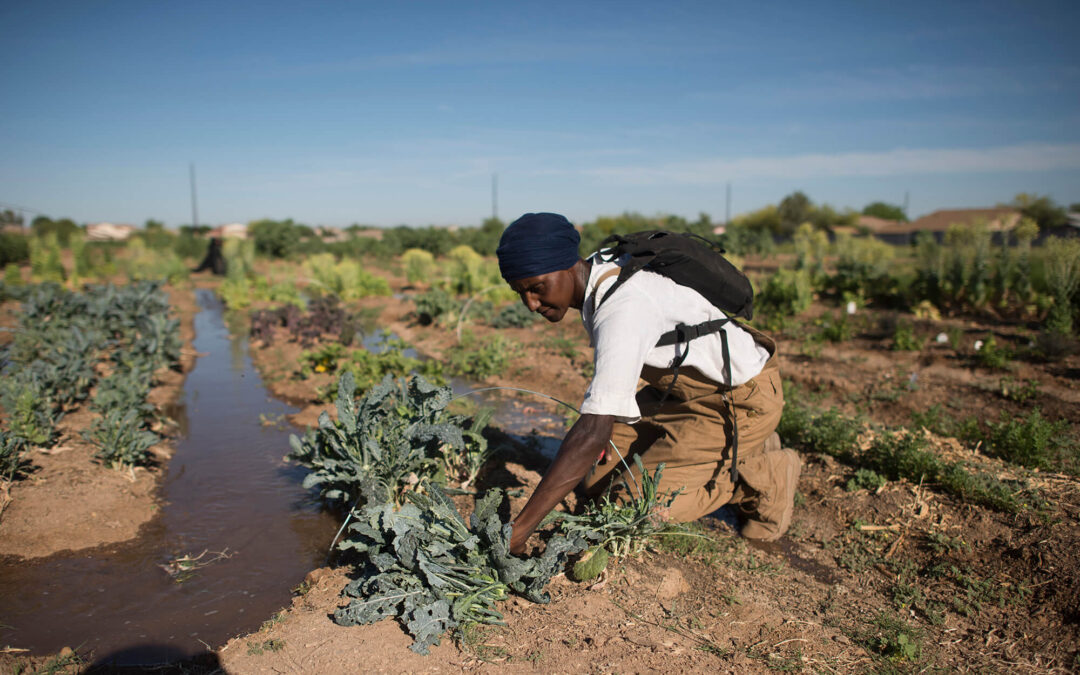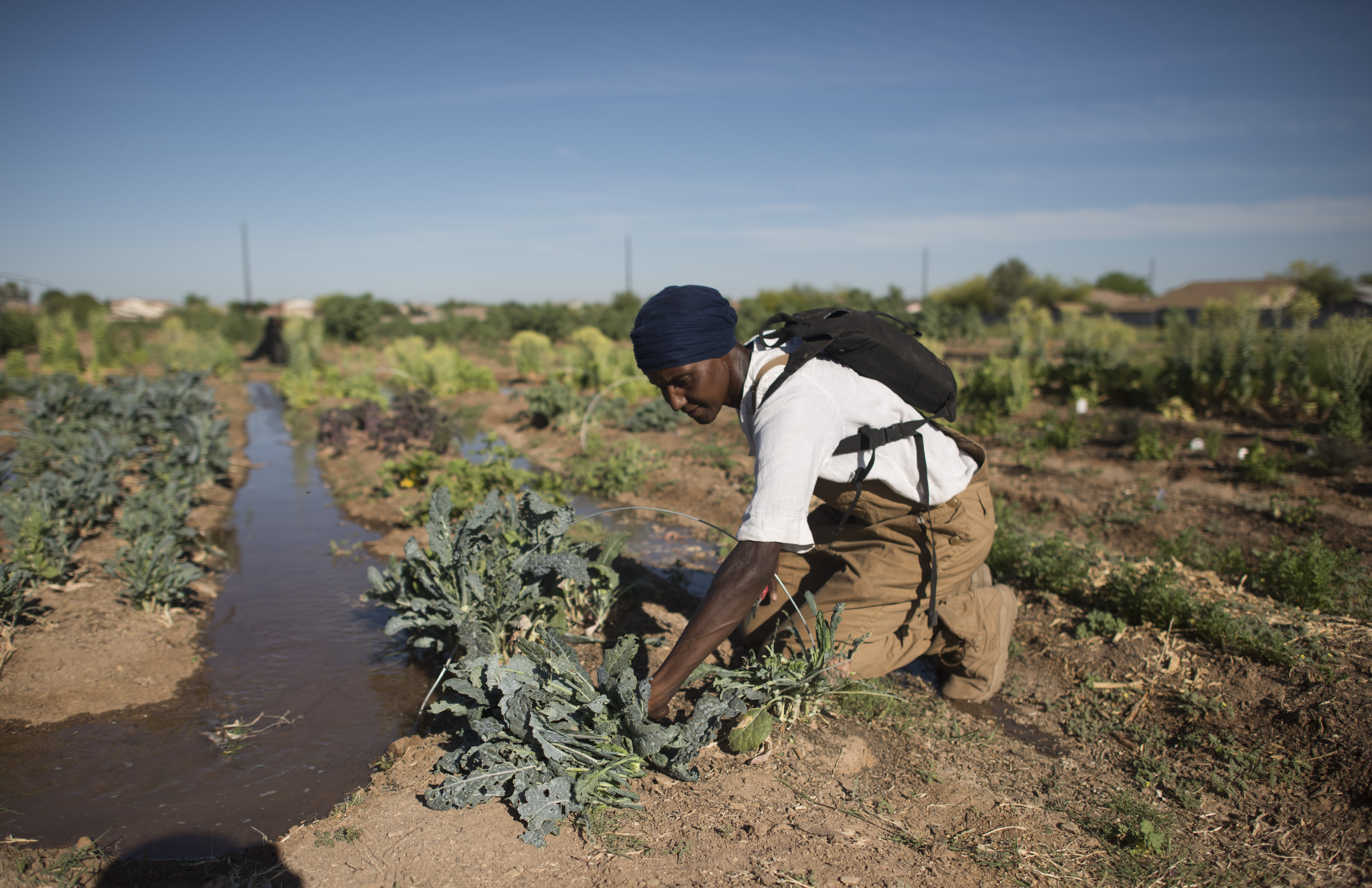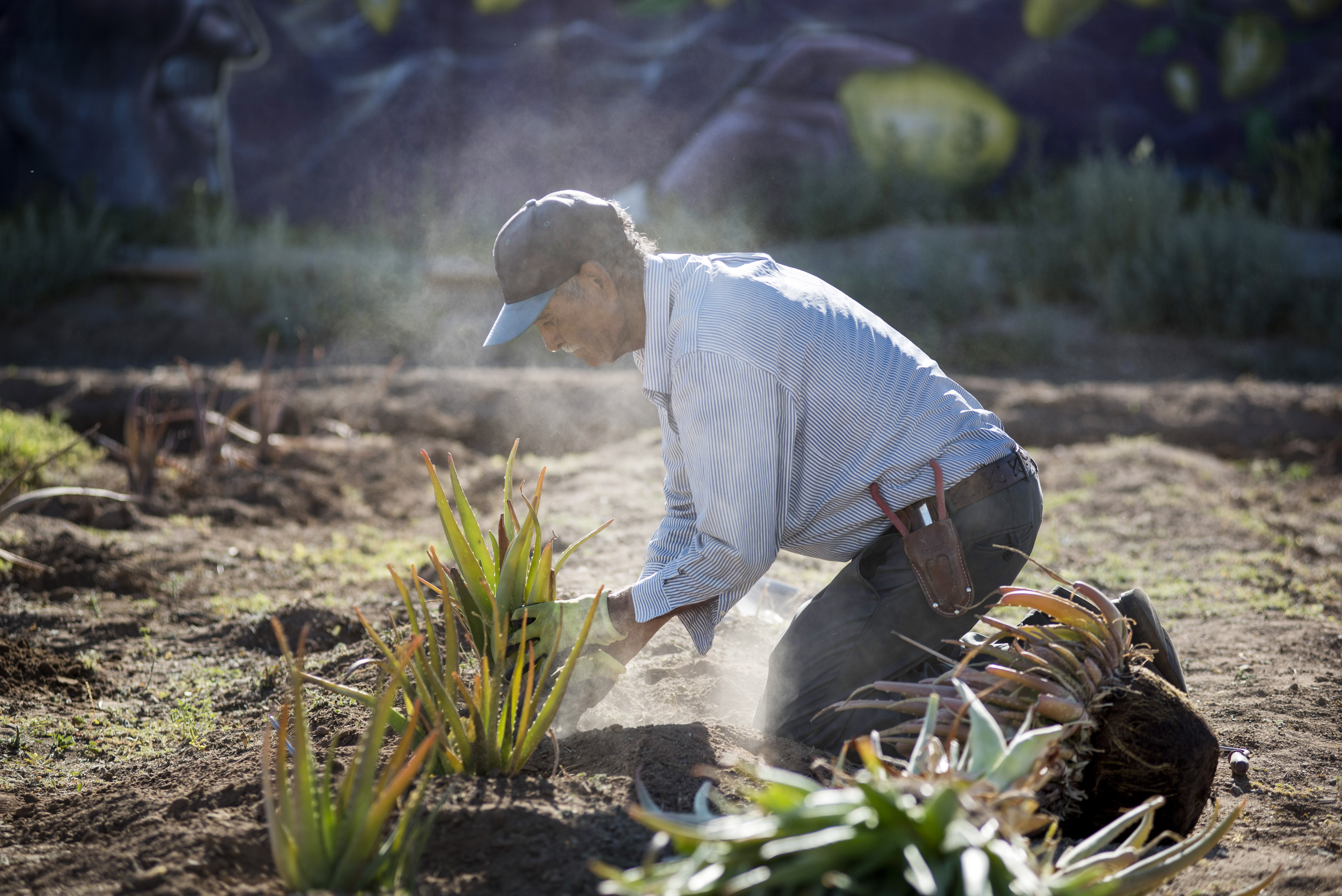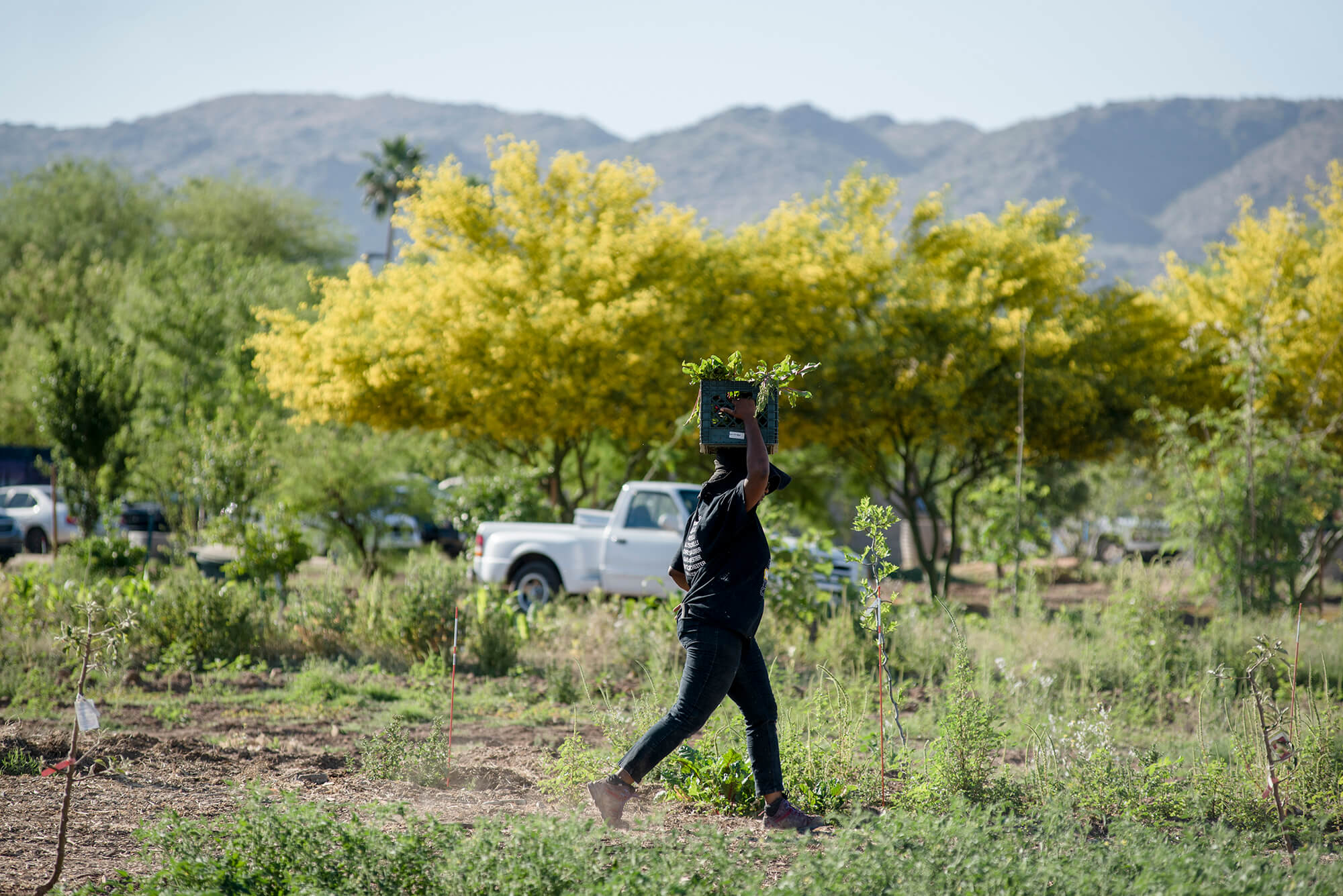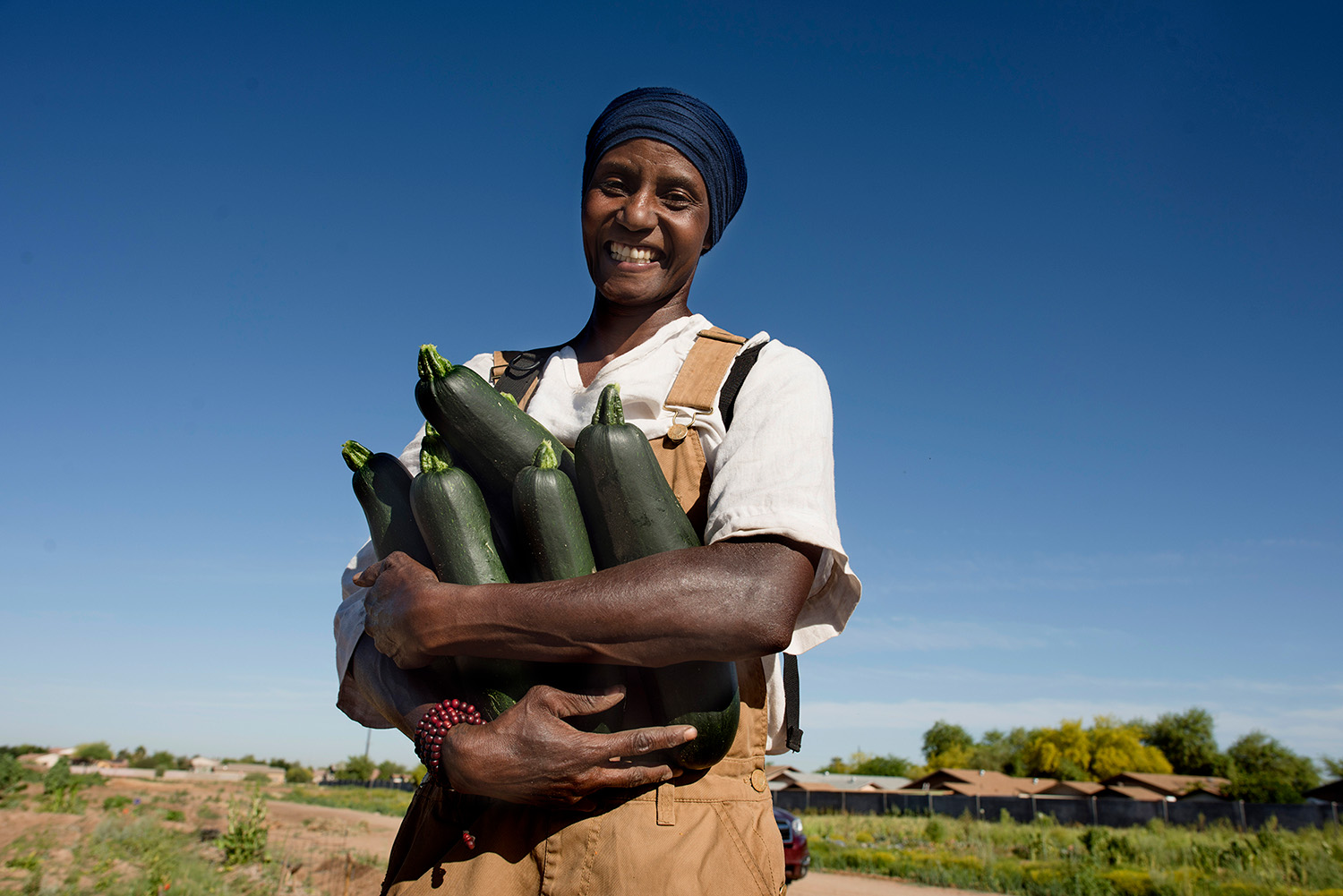The United States Botanic Garden (USBG) and American Public Gardens Association (Association) have partnered to support public gardens and their community partners engaging in urban agriculture and food-growing to address food security challenges exacerbated by the COVID-19 pandemic. This week, the USBG and the Association awarded $403,450 to 21 public garden partnerships across the United States that will foster public engagement and education in urban food growing and build capacity in urban agriculture programs. The Urban Agriculture Resilience Program aims to strengthen collaborations, promote resilience, and gather best practices from across the U.S.
Spaces of Opportunity is a partnership initiative of Desert Botanical Garden. Spaces mission is to enable all south Phoenix families to have affordable access to healthy food, active living and healthy roots of their cultures. Spaces is engineering a comprehensive, neighborhood-level food system where gardeners, farmers and farm workers are celebrated as artisans. Spaces is transforming a food desert to a food oasis through the coordination of a 10-acre incubator farm, family gardens and an on-site farmers market.
These funds will help participating programs in 16 states and Washington, D.C. integrate urban food growing and education while addressing food security challenges facing their communities. The program seeks to leverage the strength of public gardens working with partners in their communities, ranging from schools, universities, and urban farms to food pantries, community gardens, local government agencies, and nonprofit organizations. The Urban Agriculture Resilience Program will provide insight into successful approaches and future opportunities for public gardens and their partners to creatively utilize their unique assets to advance food and agriculture education in urban communities.
“The past year has underscored the widespread interest in, and need for, urban agriculture programs that address food insecurity. We are excited to build on the success of last year’s Urban Agriculture Resilience Program and support innovative collaborations between public gardens and diverse partners in their communities,” said Saharah Moon Chapotin, executive director of the U.S. Botanic Garden. “It’s inspiring to see these partners coming together to extend the reach and deepen the impact of their programming.”
“We are proud to continue to partner with the U.S. Botanic Garden and offer these awards that provide opportunities to directly address knowledge gaps and food insecurity in 21 communities nationwide,” said Casey Sclar, executive director of the American Public Gardens Association. “Through these awards we also will continue to gain knowledge of what makes successful partnerships possible, helping more gardens to be the resilient centers of their communities.”
The Urban Agriculture Resilience Program began in 2020 as a way for the USBG and the Association to help public gardens continue urban agriculture and food growing programs facing funding and capacity challenges due to COVID-19.
Public garden and community partner collaborations awarded 2021 funding include:
Alabama
- Friends of Birmingham Botanical Gardens, in collaboration with Birmingham Botanical Gardens, Alabama Cooperative Extension System, Community Kitchens
Arizona
- Desert Botanical Garden, in collaboration with Unlimited Potential, TigerMountain Foundation, The Orchard Community Learning Center, and Roosevelt School District
Colorado
- The Gardens on Spring Creek, in collaboration with Food Bank for Larimer County
Delaware
- Delaware Center for Horticulture, in collaboration with Pennsylvania Horticultural Society
District of Columbia
- Friends of the National Arboretum, in collaboration with the U.S. National Arboretum
Georgia
- Atlanta Botanical Garden, in collaboration with Friends of Refugees and Global Growers Network
- Trees Atlanta, in collaboration with the City of Atlanta Mayor’s Office of Resilience and the City of Atlanta Department of Parks and Recreation
Illinois
- The Morton Arboretum, in collaboration with Homan Grown, Stone Temple Baptist Church, and Permaculture Chicago Teaching Institute
Michigan
- University of Michigan Matthaei Botanical Gardens and Nichols Arboretum, in collaboration with Oakland Avenue Urban Farm, Detroit Black Community Food Security Network D-Town Farm
Minnesota
- Minnesota Landscape Arboretum, in collaboration with Pillsbury United Communities, WE WIN Institute, St. Paul City Schools, Plymouth Christian Youth Center, Kaleidoscope Place, North Point Health & Wellness Center Community Food Shelf, and CAP Agency Food Shelf
Missouri
- EarthDance, in collaboration with The Vine at St. Stephen’s Episcopal Church, Restorative Justice Movement, and BTC St. Vincent’s Food Pantry
New York
- Mary Mitchell Family and Youth Center, in collaboration with The New York Botanical Garden, Morris Campus Farm, La Finca del Sur, and Morning Glory Community Garden
- Queens Botanical Garden, in collaboration with La Jornada Food Pantry at Queens Museum
North Carolina
- Ability Garden, in collaboration with New Hanover County Arboretum and Cooperative Extension, Wilmington Housing Authority
Ohio
- Holden Forests & Gardens, in collaboration with Revolutionary Love Garden, Have a Hive, and Lettuce Tree Farms
Pennsylvania
- Grumblethorpe Historic House & Gardens (PhilaLandmarks), in collaboration with Chef Gail Hinson, Johnson House Historic Site, and Historic Fair Hill
- Pennsylvania Horticultural Society, in collaboration with East Park Revitalization Alliance, Neighborhood Gardens Trust
- Phipps Conservatory and Botanical Gardens, in collaboration with Homewood-Brushton YMCA
Tennessee
- Knoxville Botanical Garden and Arboretum, in collaboration with The Museum of Infinite Outcomes
Washington
- University of Washington Botanic Gardens, in collaboration with wǝɫǝbʔaltxʷ – Intellectual House, UW Nutritional Sciences Program, UW Neighborhood Design/Build Studio, and UW Program on the Environment
Wyoming
- Friends of the Cheyenne Botanic Gardens, in collaboration with Wyoming Hunger Initiative
